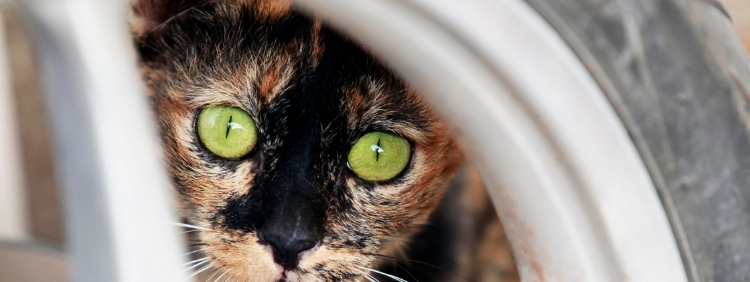 Mice are destructive creatures when they invade your home. They tear up building materials, leave droppings around your house and have the capability of spreading disease. Although the rodents are small and seem unexceptional, they’re not easy to control when they make a nest on your property. Mice are agile mammals that are more intelligent than you think, and their aggressive breeding practices can add up to 60 mice in a year. There are several techniques used for rodent removal, but are cats effective in controlling mice?
Mice are destructive creatures when they invade your home. They tear up building materials, leave droppings around your house and have the capability of spreading disease. Although the rodents are small and seem unexceptional, they’re not easy to control when they make a nest on your property. Mice are agile mammals that are more intelligent than you think, and their aggressive breeding practices can add up to 60 mice in a year. There are several techniques used for rodent removal, but are cats effective in controlling mice?
 Mice are destructive creatures when they invade your home. They tear up building materials, leave droppings around your house and have the capability of spreading disease. Although the rodents are small and seem unexceptional, they’re not easy to control when they make a nest on your property. Mice are agile mammals that are more intelligent than you think, and their aggressive breeding practices can add up to 60 mice in a year. There are several techniques used for rodent removal, but are cats effective in controlling mice?
Mice are destructive creatures when they invade your home. They tear up building materials, leave droppings around your house and have the capability of spreading disease. Although the rodents are small and seem unexceptional, they’re not easy to control when they make a nest on your property. Mice are agile mammals that are more intelligent than you think, and their aggressive breeding practices can add up to 60 mice in a year. There are several techniques used for rodent removal, but are cats effective in controlling mice?

